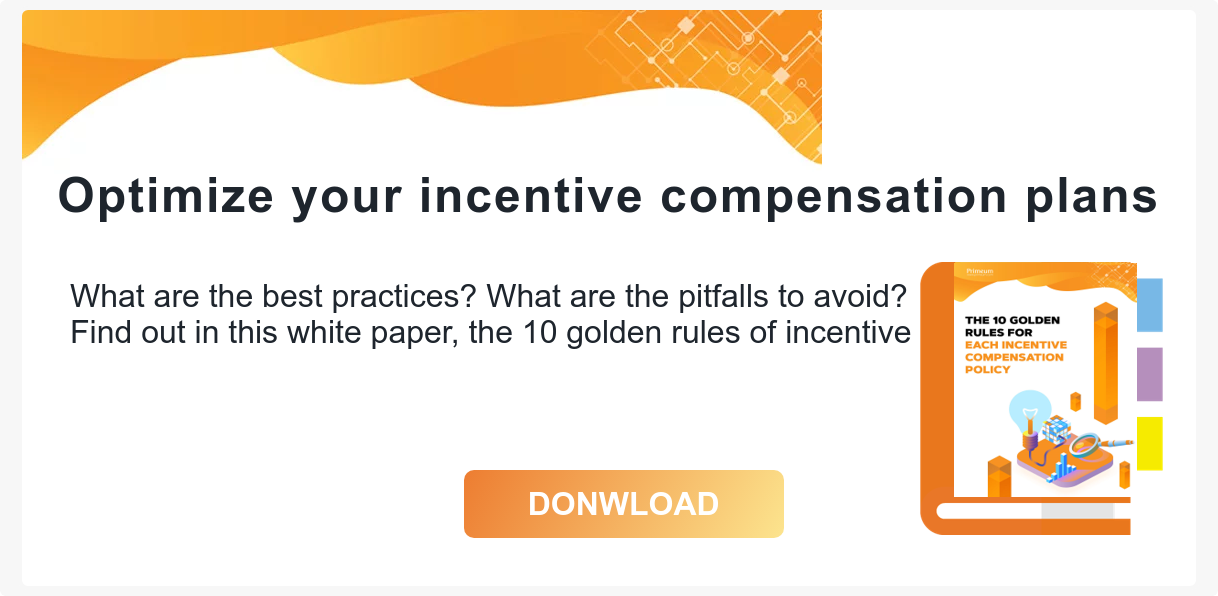Very often, bonuses are perceived negatively by employees, being accused of encouraging competition between colleagues. But when it comes to implementing a major change in their allocation system, they cause real anxiety. To avoid this tension and to ensure good communication between companies and their employees, it is important to follow certain rules. In this article, we explain how to set up a new bonus system in five steps.
1) Understand that bonuses cause apprehension
In many companies, bonuses are a taboo subject. The reason for this is simple: they reward performance and their mere existence reminds employees that they have to make a certain amount of effort to earn them.
Incentive compensation brings with it the possibility of higher or lower earnings, but also the risk of getting nothing at all. It is therefore natural that it is a source of dissatisfaction or disappointment. However, talking about it is crucial to maintaining a healthy and honest working relationship.
Companies need to be able to communicate about the system they are putting in place and the changes they decide to make to it. If it is justified, fair and profitable for both employees and the company, there is no reason not to talk about it. Nevertheless, the process requires a certain methodology when it comes to presenting adjustments to the scheme.
2) Carry out a qualitative study beforehand
Since prevention is better than cure, the first step in developing a new bonus system is to gather employees’ opinions on the current system. The aim is not to get all employees involved in changing the bonus system, but rather to take stock of the strengths and weaknesses of the existing one. The aim of the process? To ensure the changes that are about to be implemented are relevant and to adjust them if necessary.
To do this, it is a good idea to consult the sales director and managers to carry out a qualitative study. The questions put to employees should assess their understanding of and support for the bonus system. Be careful, however, not to ask them to make overly specific requests. Asking them to list their requests is risky, because if they are not taken into account, employees could be disappointed and feel side-lined.
3) Explain and justify the changes implemented
Once the employer understands how the bonus system is perceived, it is time to consider how to improve it. The aim is to find a fair and cost-effective balance between employee satisfaction and the company’s objectives. These objectives, whether strategic or related to new factors, must be made clear to employees to justify the introduction of the new bonus system.
4) Anticipate questions and address concerns
In the dialogue between employer and employees, anticipation is the key to success. As change is an inevitable source of anxiety, employees’ questions should be answered before they are asked. The company must therefore be very clear about the company’s situation, collective and individual objectives and the impact of these changes on employees’ careers.
It must be able to give clear answers to questions about sales prices, revised targets, salespeople’s portfolios, potential transfers, positions and overall compensation etc. Once the employee is aware of the new scheme, they should be convinced that if they comply with the new conditions for the granting of these bonuses, they will earn at least as much as under the old system, if not more, precisely because of these new measures.
5) Be transparent
The message must be clear and accessible, as well as accurate. Employees should be able to calculate their bonuses themselves. Transparency is a sign of trust between employees and employers. The less time employees spend calculating their bonuses, the more confidence they have in their company and the more they will adhere to the system.
It is therefore essential to provide employees with all the necessary information to avoid suspicion and allay any fears. Under no circumstances should employees have to ask for information that is essential for calculating their bonuses or simply for understanding the system. In some cases, it is better to indicate that the performance data is not yet final, rather than risking an unpleasant surprise for employees.
Companies which are methodical, honest and clear can successfully introduce the most ambitious changes and gain the support of its employees. By focusing on discussion and communication, an employer can defuse anxiety-provoking situations and boost employee motivation.





